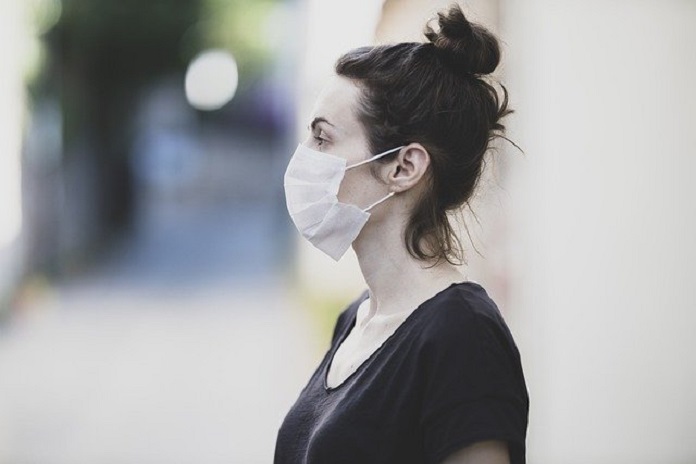A recent analysis investigated the immediate and longer-term effects of COVID-19 and other severe coronavirus infections on mental health.
The typical symptoms of COVID-19, the illness caused by the coronavirus SARS-CoV-2, are related to the viral effects on the respiratory system, such as cough, shortness of breath, and fever. However, in some cases SARS-CoV-2 may also affect other body systems, including the nervous system. In the acute stages, severe coronavirus infections may have a direct effect the brain, or impair brain function either by reducing blood oxygen or by stimulating the body’s immune response. In the longer-term, following recovery, the psychological impact of suffering from a potentially fatal illness could also affect mental health.
In previous outbreaks of novel coronaviruses that caused severe acute respiratory syndrome, (SARS) in 2002 and Middle East respiratory syndrome (MERS) in 2012, some studies looked at viral effects on mental health. Based on these reports and initial studies in COVID-19 patients, researchers from University College London, King’s College London and University of Pavia, Italy, investigated the possible immediate and longer-term effects of COVID-19 on mental health. They recently published their findings in Lancet Psychiatry.
Severe coronavirus infections may have direct or indirect effects on mental health
The researchers systematically reviewed studies reporting on the mental health symptoms of patients with suspected or confirmed SARS, MERS, and COVID-19. They found 72 studies that met their criteria, and analyzed data from over 3,550 hospitalized patients.
Two studies looking at initial common psychiatric symptoms of patients hospitalized with SARS or MERS found that confusion was common (27.9%, 36/129 patients), suggesting delirium (an acute confused state) is a frequent feature in severe cases. Depressed mood (32.6%, 42/129 patients), anxiety (35.7% 46/129 patients), impaired memory (34.1% 44/129 patients) and insomnia (41.9%, 54/129 patients), were also frequently reported.
Recent studies on patients with severe COVID-19 infections showed a similar pattern in the initial phase, with one study reporting confusion in 26/40 (65%) ICU patients and agitation in 40/58 (69%) ICU patients. Another study reported altered consciousness in 17/82 (21%) COVID-19 patients who subsequently died from the illness.
Six studies looking at recovered SARS and MERS patients found frequent reports of low mood (10.5%, 35/332 patients), insomnia (12.1%, 34/280 patients), anxiety (12.3%, 21/171 patients), irritability (12.8%, 28/218 patients), memory impairment (19.3%, 44/233 patients) and fatigue (19.3%, 61/316 patients). In one study, recall of traumatic memories (30%, 55/181 patients) and sleep disturbance (100%, 14/14 patients) were reported.
The researchers estimate that the prevalence of post-traumatic stress disorder (PTSD) among SARS and MERS survivors was 32.2% (121/402 cases in four studies). Estimated rates of depression and anxiety disorders were 14.9% (77/517 cases, from five studies) and 14.8% (42/284 cases, from three studies), respectively. However, the authors caution that these may be overestimates, due to the lack of adequate comparison groups or assessment of patients’ previous mental health history, making it difficult to accurately determine the coronavirus effects.
Mental health effects of COVID-19 need further high-quality study
The researchers concluded that most people with severe COVID-19 should recover without experiencing mental illness, if the infection follows a similar pattern to the earlier coronavirus epidemics of SARS and MERS. Delirium may be common in hospitalized patients. In the longer-term, COVID-19 patients may be at risk of depression, anxiety, fatigue, and PTSD.
The authors caution that most of the studies reviewed (68/72 studies) were of low or medium quality and mainly included SARS and MERS patients. “With few data yet for COVID-19, high quality, peer-reviewed research into psychiatric symptoms of patients infected with SARS-CoV-2 as well as investigations to mitigate these outcomes is needed. Monitoring for the development of symptoms should be a routine part of the care we provide,” commented Dr. Jonathan Rogers (University College London), one of the lead authors on the study.
In a linked comment, Dr. Iris Sommer (University of Groningen, The Netherlands), who was not involved in the study noted, “Findings from previous coronavirus outbreaks are useful, but might not be exact predictors of prevalence of psychiatric complications for patients with COVID-19. The warning from Rogers and colleagues that we should prepare to treat large numbers of patients with COVID-19 who go on to develop delirium, PTSD, anxiety, and depression is an important message for the psychiatric community.”
Written by Julie McShane, MA MB BS
References:
1. Rogers JP, Chesney E, Oliver D, et al. Psychiatric and neuropsychiatric presentations associated with severe coronavirus infections: a systematic review and meta-analysis with comparison to the COVID-19 pandemic. Lancet Psychiatry Published Online, May 18, 2020. https://doi.org/10.1016/S2215-0366(20)30203-0.
2. The Lancet, Press release 18 May 2020. “The Lancet Psychiatry: Study finds few immediate mental health effects of COVID-19, but longer-term impact must be considered.” https://www.eurekalert.org/pub_releases/2020-05/tl-pss051820.php
Image by Engin Akyurt from Pixabay



